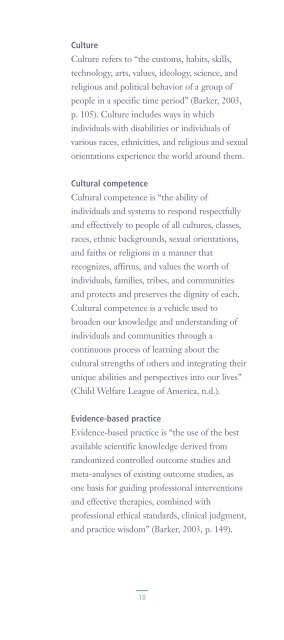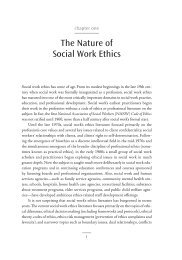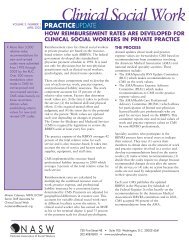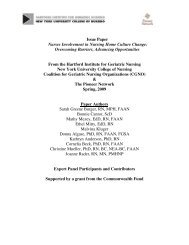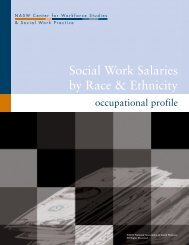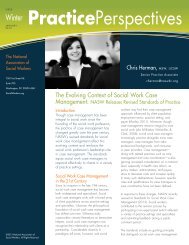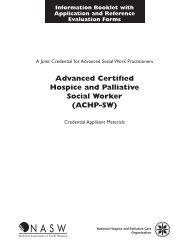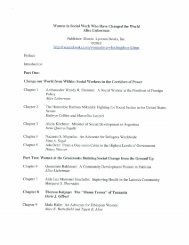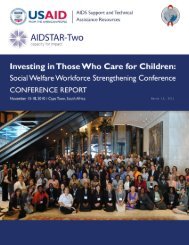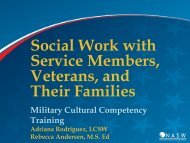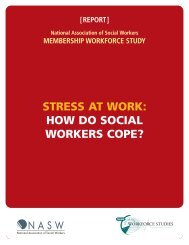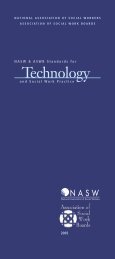Child Welfare - National Association of Social Workers
Child Welfare - National Association of Social Workers
Child Welfare - National Association of Social Workers
Create successful ePaper yourself
Turn your PDF publications into a flip-book with our unique Google optimized e-Paper software.
Culture<br />
Culture refers to “the customs, habits, skills,<br />
technology, arts, values, ideology, science, and<br />
religious and political behavior <strong>of</strong> a group <strong>of</strong><br />
people in a specific time period” (Barker, 2003,<br />
p. 105). Culture includes ways in which<br />
individuals with disabilities or individuals <strong>of</strong><br />
various races, ethnicities, and religious and sexual<br />
orientations experience the world around them.<br />
Cultural competence<br />
Cultural competence is “the ability <strong>of</strong><br />
individuals and systems to respond respectfully<br />
and effectively to people <strong>of</strong> all cultures, classes,<br />
races, ethnic backgrounds, sexual orientations,<br />
and faiths or religions in a manner that<br />
recognizes, affirms, and values the worth <strong>of</strong><br />
individuals, families, tribes, and communities<br />
and protects and preserves the dignity <strong>of</strong> each.<br />
Cultural competence is a vehicle used to<br />
broaden our knowledge and understanding <strong>of</strong><br />
individuals and communities through a<br />
continuous process <strong>of</strong> learning about the<br />
cultural strengths <strong>of</strong> others and integrating their<br />
unique abilities and perspectives into our lives”<br />
(<strong>Child</strong> <strong>Welfare</strong> League <strong>of</strong> America, n.d.).<br />
Evidence-based practice<br />
Evidence-based practice is “the use <strong>of</strong> the best<br />
available scientific knowledge derived from<br />
randomized controlled outcome studies and<br />
meta-analyses <strong>of</strong> existing outcome studies, as<br />
one basis for guiding pr<strong>of</strong>essional interventions<br />
and effective therapies, combined with<br />
pr<strong>of</strong>essional ethical standards, clinical judgment,<br />
and practice wisdom” (Barker, 2003, p. 149).<br />
10


